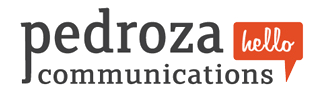The key to a great press campaign lies in knowing what journalists are really looking for in a news story. So before you start pitching your next campaign, take a few minutes to discover what journalists really want to hear.
Research & relevance
If you really want to understand what will interest the journalist and their readers, invest some time in looking at their output. Which issues do they seem most concerned about? It can be tempting to pitch every story to as many journalists as possible, but this is rarely a good idea. Sending irrelevant press releases to a journalist is more likely to damage your relationship with them than to help you build a strong connection. So, pitch to the journalists who you think are most likely to find your story relevant to their audience.
News hooks
A news hook is what makes your story relevant and is why a journalist may want to cover it. Start by asking yourself the question, ‘so what?’ and focus on why your story is important today. For example, what will happen if everyone ignores your latest research? What impact will this have? When you pitch make sure your hook is summarised in the subject line of an email and reiterated in the first line of the email. Click here for more tips on how to create a good news story.
Good timing
It’s not a secret that journalists are busy people. To maximise your chances of reaching them on the phone, avoid calling radio or TV journalists when their show is on air, and don’t call weekly on monthly publications on their press day (that’s the day they put the publication to bed).
Facts and evidence
‘Fake news’ is a real concern amongst journalists and readers these days and for good reason. The increased awareness makes people more sceptical about the news that they consume and for this reason, journalists will want to know that the information you’re providing is accurate. Double-check any facts and figures that you’re sharing and make sure you can defend every point in your press release.
A press release
According to Cision’s 2018 ‘Global State of the Media’ study, when it comes to valuable content, reporters and editors still trust a press release most. 63% of those involved in the study said that news and announcements are the two key things that they want from their PR contacts. Click here for more advice on how to pitch your story.
Data and expert sources
Try to be as helpful as you can by providing additional information relating to your story. If you can help a journalist with researching their stories, they are more likely to see you as an asset and may even start to reach out to you for support or comment in the future.
Video and audio
Including audio and video in your pitch can increase the likelihood of your story being published. Stories with additional multimedia assets are often more popular amongst readers and these assets also save the journalist from having to source additional content.
Links to awareness days
Pitching your story on the relevant awareness day is a great idea but you need to have a good story. Make sure that the awareness day is relevant to the journalist’s audience and ensure that you have something good to hook to the day. If you’re looking for a list of education-specific awareness days, our up-to-date calendar is a good place to start.
Finally, the best way to pitch your story is to put yourself in the shoes of the journalist. What would you do if you were writing a news story based on some new research, working on a package for a TV news piece or developing ideas for a feature in a monthly magazine? What would interest others? Thinking like a journalist is the best way to put together a pitch that will succeed in getting attention.
Get free education marketing tips and advice
Our go-to email resources are for anyone looking to reach an education sector audience. Get inspiration and practical help on everything from pitching your story to journalists, to engaging influencers to spread the word, to securing TV coverage.
